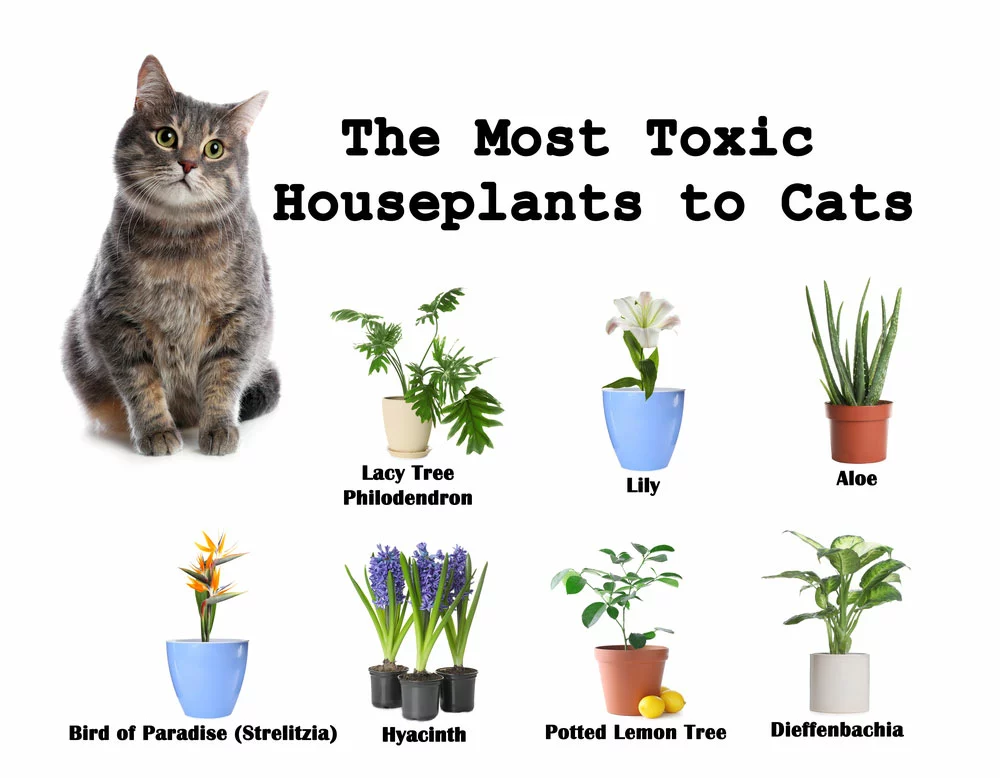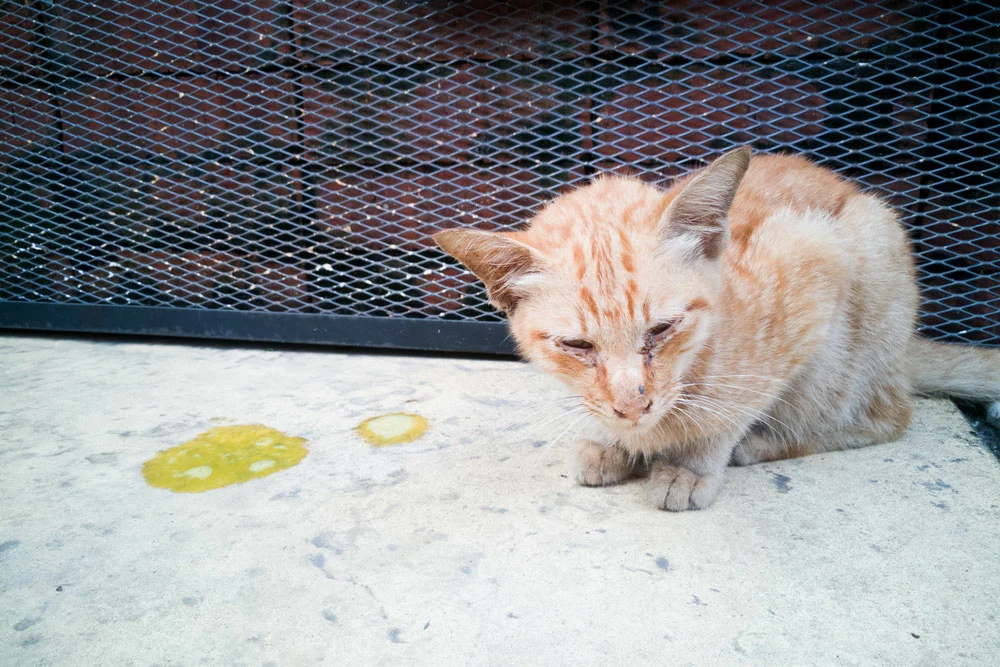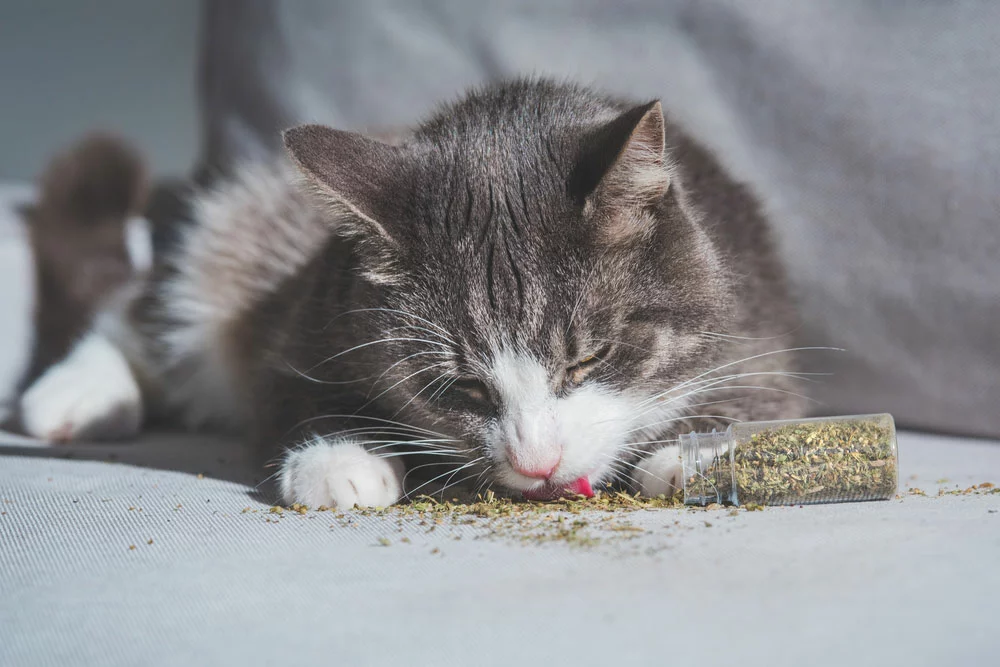Gardeners who adore all flower types decorate their homes and gardens with plants, but some aren’t cat-friendly. Despite your deep appreciation for your flower collection, your cat remains your first pick. Today, we’ll be exploring Cosmos houseplants. Are cosmos poisonous to cats?
Let’s discover and learn.
Table of Contents
- What are Cosmos plants?
- Are Cosmos Plants Toxic to Cats?
- Symptoms of Cosmos poisoning in cats
- What to do if your cat eats some cosmos
- How to Keep Cats Away From Cosmos?
- Frequently Asked Questions
- Conclusion
What are Cosmos plants?
Cosmos is a genus plant from the sunflower-flowering family that grows annually or perennially to a height of 1’0-6’7 inches. Its bipinnate, pinnate, and simple leaves have an alternating pair arrangement. A capitulum possessing a ring of broad disc florets and ray florets center produces flowers of various colors.

(White cosmos flowers)
Are Cosmos Plants Toxic to Cats?
The cosmos’ leaves, blossoms, or stems are cat-friendly since they have no cat-harming chemicals. So, you may cultivate the flower as a houseplant without worrying about your cat becoming sick.
Naturally, too much Cosmos can make your cat sick and cause them to have diarrhea, stomachaches, or vomiting.

(Several harmful houseplants)
Symptoms of Cosmos poisoning in cats
Cosmos isn’t poisonous to cats, although consuming a large amount of the plant may cause symptoms like vomiting and diarrhea.
A large amount of Cosmos consumption by cats usually produces symptoms similar to poisoning. However, the symptoms are because of the nature of the cat’s digestive system and not due to the body’s adverse effects.
If you see any of these signs, visit a veterinarian as soon as possible to begin your cat’s treatment. Often, vets handle your cat depending on how it reacts to consuming Cosmos. Also, its current health status and age will influence the treatment option offered.

(A sick cat vomiting on the floor)
What to do if your cat eats some cosmos
So, your cat has eaten the cosmos plant. What do you do now? Let’s discuss a few steps to take.
Check your cat’s health.
Check your cat for any illness. Cosmos shouldn’t make cats sick, so if it’s unwell, look for other possible causes. If they consume too much plant material, your cat may have an upset stomach, although symptoms are typically mild.
Call the vet
Concerned about your cat being sick from over-consuming Cosmos? Call your vet for consultation. For convenience, you can equally contact the animal poison control hotline.
Observe your cat
Your vet may recommend observing your cat. Therefore, ensure you keep an eye out for more serious symptoms in the cat.

(Online consultation with a veterinarian)
How to Keep Cats Away From Cosmos?
The following tips are useful in keeping your cat away from Cosmos.
- Cats especially like catnip, honeysuckle, and mint, meaning they’ll likely focus on them rather than your cosmos. Just ensure you have a small sandbox nearby for the cat’s business. And regularly clean it up and dispose of the waste carefully.
- Motion-activated bells and wind chimes that activate when cats approach them are great ideas. Other motion-activated gadgets like ultrasonic devices generate a frequency that cats cannot tolerate but is barely audible to humans.
- You can keep cats away from the yard with a gentle spritz from a squeeze bottle or sprinkler system in the garden.

(Cat licking catnip)
Frequently Asked Questions
Q: Are all cosmos flowers safe for cats?
Orange and yellow are the primary colors of the Cosmos sulphureus plant. There are four different flower color varieties in the Cosmos sulphureus family, i.e., white, red, purple, and pink.
So, avoid letting your cat eat the Cosmos flowers unless you know the right species.
Q: How many types of Cosmos plants exist?
Cosmos species exceed 25, with most people using only three types, primarily in landscaping and gardening. One specie, cosmos sulphureus, inhabits Northern South America, Central America, and Mexico. Others include C. bipinnatus, C. carvifolius, etc.

(Cosmos chrysanthemum)
Conclusion
Now that we’ve learned about the cosmos, we’re confident you’ll take the correct measures to protect your control. Remember, anything in excess can be dangerous, which hugely applies to Cosmos plants.
